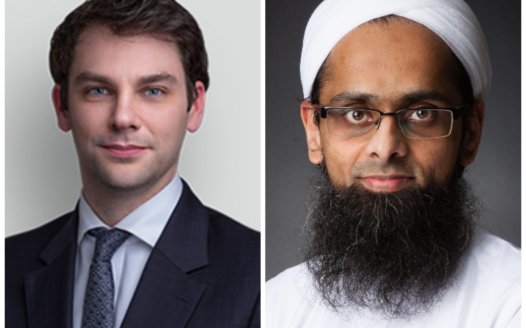DUP vows to resist calls to legalise abortion and same-sex marriage
Posted: Fri, 11th Aug 2017
DUP leader Arlene Foster has said her party will retain Northern Ireland's restrictions on abortion and same-sex marriage, despite growing pressure for reform.
This week Foster said her party believes that "marriage is between a man and a woman" and "it remains my position very firmly". She was speaking at an event organised by the Methodist Church in Ireland.
She also met Precious Life, which describes itself as "the largest pro-life group in Northern Ireland". Afterwards the organisation said she had assured them her party will do "everything in its power" to maintain Northern Ireland's limits on abortion.
Abortion has been illegal in Northern Ireland since the Victorian era. It has been decriminalised in the rest of the UK since the 1960s.
"Ms Foster was unequivocal in her pro-life conviction and assured us that the DUP will use their power to keep abortion, and the 1967 Abortion Act, out of pro-life Northern Ireland," a spokeswoman for Precious Life told The Times.
The group also said Foster had congratulated it on its youth campaign group, which has travelled around Northern Ireland this summer.
Her party is increasingly facing calls to allow women to have abortions. In June the UK government announced that Northern Irish women would be allowed access to NHS abortion services in England. Around a thousand women make the trip each year.
The number of legal abortions in the province was recently measured at just 15. In 2015 the Belfast High Court ruled that the law was in breach of international human rights standards as it did not permit terminations in cases of rape, incest or serious foetal abnormalities.
The DUP's position is a crucial factor in the passage of legislation. Last year an Ipsos-Mori poll found that 70% of the Northern Irish electorate was in favour of legalising same-sex marriage. And in 2015 the devolved Northern Ireland Assembly voted by a thin majority to legalise it. But the motion was blocked through the use of a "petition of concern", a measure introduced under the Good Friday Agreement of 1998. The petition was designed to protect the rights of minority groups.
Foster has made clear that religion is a crucial reason for her party's stance. Last year she said "the DUP is – and we make no apology for this – founded on very strong Christian values." She was responding to a question about the relevance of issues such as marriage and abortion to her party's identity.
And religious groups have resisted calls to liberalise the law. The Northern Ireland Evangelical Alliance is among those to oppose same-sex marriage. In 2015 a coalition of groups offered "strong support" to legislation which would have introduced a ten year prison sentence for carrying out an abortion.
That year the Catholic Council for Social Affairs was also recognised as an "interested party" in a case seeking to overturn a High Court ruling that Northern Ireland's restrictions on abortion in cases of rape, incest and fatal foetal abnormality breeched Article 8 of the European Convention on Human Rights.
The National Secular Society has consistently campaigned against Northern Ireland's restrictions on abortion and in favour of extending marriage to same-sex couples. In evidence submitted to the United Nations Human Rights Council for their 2017 review of the UK, the NSS called Northern Ireland's restrictions on abortion out of touch with international human rights norms, and called on the Council to renew their 2012 recommendations on the topic. While healthcare is a devolved issue, the NSS argued, human rights are not.
In 2016 the Human Rights Council's review of the Republic of Ireland – in which 15 countries issued recommendations on Ireland's abortion laws – led to increased pressure on the country to repeal their constitutional amendment banning abortion. A referendum is expected in spring 2018.
A spokesperson for the NSS said: "This time next year, access to abortion and same-sex marriage will be available across the British Isles. Unfortunately Northern Ireland is likely to remain the exception.
"Arlene Foster's remarks are disappointing. The DUP continues to commit to restricting the choices of women and LGBT+ people, defying the changing views of many of the people she leads. This is further evidence that religious groups have excessive influence on public policy in Northern Ireland."
Picture credit: © Northern Ireland Office









